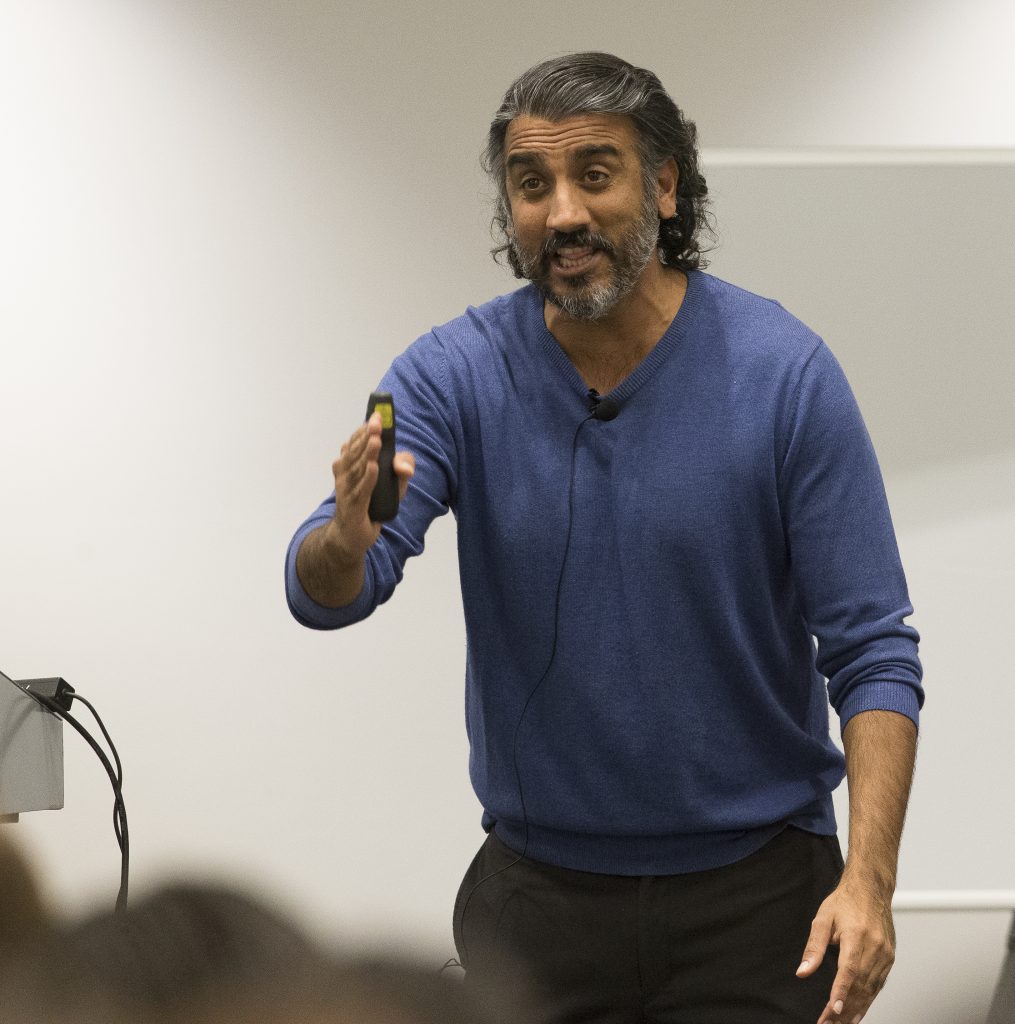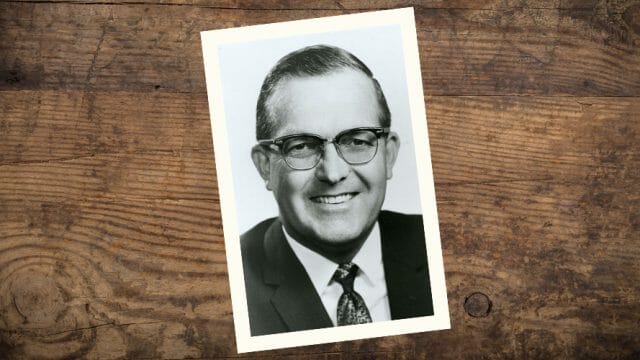At 2020 GYC Convention, an Adventist pastor shares a biblical take on an often overlooked topic.

Seventh-day Adventist pastor and youth leader Anil Kanda said that God hears the earnest prayers of anyone who calls upon a higher power even if he or she does not know Him. Kanda’s presentation, entitled “Abraham’s Other Children,” was one of the opening breakout sessions at the 2020 Generation. Youth. Christ (GYC) Convention in Louisville, Kentucky, United States, on January 2.
Kanda’s presentation provided biblical and Adventist Church co-founder Ellen G. White’s support to the notion that God is continually working beyond faith borders to reveal Himself to people who seek Him.

“All over the world, sincere people are praying to a higher power, asking for help,” Kanda said. “God hears and answers the earnest prayers of those people.”
Kanda, who has roots in India and a Sikh family background, said that the promise of God to Abraham in Genesis 22:17, 18 guarantees God’s blessings upon all peoples. According to the Bible, God told Abraham, “I will multiply your descendants as the stars of the heaven and as the sand which is on the seashore…. In your seed, all the nations of the earth shall be blessed.” It is a promise, Kanda explained, that raises several important questions. During his presentation, he addressed some of those concerns.
A Reversal of the Call
Kanda reminded his audience that we live on a planet with a population of 7.8 billion, the majority of which is not Christian, and most of those who are labeled as such subscribe to beliefs not in harmony with Scripture. So the question is, according to Kanda, “In which ways does God work to save the nations? How are Adventists supposed to understand the divine care with unreached people groups? How does God work with them? Where is the Savior of these people? Is there a God that provides atonement for them?”
Based on the book of the Old Testament prophet Jonah, Kanda showed how the call to Jonah “effectively reverses the sequence of Abraham’s call.” It also reverses, in a way, the Bible’s flood narrative. “In Jonah, the righteous are now underwater and the unrighteous above the water,” he said in reference to the time Jonah spent inside a big fish before accepting God’s call to preach to other nations.
“The majority of God’s people are still in Babylon,” Kanda asserted in reference to the symbol of non-biblical teachings. “God wants to save them and is ready to answer anyone who calls on a higher power.” He quoted several Bible verses, including John 1:9, which says in reference to Jesus, “That was the true Light which gives light to every man coming into the world.”
Kanda also quoted White, who, in her book The Desire of Ages, wrote, “Among the heathen are those who worship God ignorantly, those to whom the light is never brought by human instrumentality, yet they will not perish. Though ignorant of the written law of God, they have heard His voice speaking to them in nature, and have done the things that the law required. Their works are evidence that the Holy Spirit has touched their hearts, and they are recognized as the children of God.” In that sense, “God is more willing to answer the heartfelt prayers of sincere praying Buddhists, Hindus, and Muslims than He is willing to answer Buddhist, Hindu, and Muslim prayers,” Kanda said.
Universalism Is Not the Answer
Kanda explained that accepting that God hears everyone does not mean embracing universalism, or the belief that in the end, everyone will be saved no matter what.
“Universalism is not biblical because it removes the freedom of choice and God’s justice, diminishes the belief of others, and renders the gospel moot,” he explained.
What the Bible and inspired writings show, however, is that God reveals Himself to everyone open to Him, because “He has an equal care for all the souls He has created,” Kanda added, quoting Ellen G. White again. In that sense, he said, “God offers everyone light, and they have to respond. But everyone has the opportunity to respond.”
It does not cheapen the individual experience of the transformed person, he said.
“The light God gives the person is still a narrow path, and the person must carry his or her cross according to what God reveals,” he explained.
How Abraham Reached People
Kanda believes that the key may be found in reviewing how Abraham related and reached out to other people while living in Canaan. He enumerated several elements he found in the patriarch’s story in Genesis.
“Abraham possessed a well-ordered household, his business practices were honest, he was not known for self-aggrandizement, and he made friendships and alliances,” Kanda said, while providing examples of each characteristic. He also mentioned how Abraham looked out for other people, interceded for others, was hospitable, and set up altars of prayer everywhere he went. “Other people knew they could trust Abraham, and they looked up to him,” Kanda said.
He provided other biblical examples, such as Ittai the Gittite and others, who were not from Israel but natives of Gath, according to 2 Samuel 15, and so related to Goliath.
“Some of David’s most loyal men were converted Philistines,” Kanda reminded his listeners. “They stayed faithful to David even when most of his people deserted him.”
We would do very well to follow the examples of Abraham, David, and others, Kanda said. In that sense, he was giving tips on how to relate to people from non-Christian religions.
“There are two ways people commonly called ‘heathens’ can understand God,” Kanda said. “Through showing them a picture of God as Creator and Someone who hears our call for help,” he said, “and by training converts in the path of discipleship.”
This is what can allow us to work together with a God that is already reaching out to every person.
“Remember that God knows how to deal with all the unreached people,” Kanda said. “And God hears them.”








